Full day Seminar on “Capital Gains and Income from Other Sources” held on 18th January 2019 at BCAS Conference Hall
The Taxation Committee organised a full day Seminar on Capital gains and Income from other Sources on 18th January, 2019 at BCAS Conference Hall, with distinguished speakers sharing their in-depth knowledge on the subject. The event garnered overwhelming response and saw an attendance of 104 participants which also included outstation participants from 6 cities. President CA. Sunil Gabhawalla gave the opening remarks.
Following topics were taken up at the Seminar by the Speakers:
| Certain Fundamental Concepts Governing Capital Gain on Immovable Property | Adv. Vipul Joshi |
| Overview of provisions of capital gains from transfer of shares and securities – issues in long term capital gains on listed shares – applicability of grand fathering clause – derivatives – business income v/s capital gains | CA. Gautam Nayak |
| Income from Other sources – transfer of shares between relatives and non-relatives including minor – issues in section 56(2) – sale of shares of distressed companies – intergroup transfer and restructuring – recent judicial decisions. | CA. (Dr.) Anup Shah |
| Brain Trust Questions – Capital Gains Issues
Short term – long term – sections 45 & 48 – sections 54, 54EC and 54F – section 47: transfers not liable to tax – clubbing of income – exempt income – winnings from lotteries, prizes etc. |
CA. Rajan Vora,
CA. Anil Sathe & CA. Radhakishan Rawal |
Adv. Vipul Joshi started the first session highlighting the fundamental concepts on taxation of Income from Capital gains. He concentrated on various issues arising from Capital Gains on Immovable Property and cited relevant case laws on various issues.
CA. Gautam Nayak explained to the participants about Taxability on Transfer of Shares & Securities. He discussed and explained the basis on which the income should be categorised as Capital Gains or Business income. He gave his insights on taxation of transactions in derivatives. Participants also had the benefit of knowing Mr Nayaks’ views on Capital Gains on listed Equity Shares and EOMFs as amended vide the Finance Act 2018.
CA. (Dr.) Anup Shah spoke on issues under section 56(2) and business restructuring. He covered almost all the issues and gave the recent jurisprudence on the said issues. He also gave his insights on newly inserted section 56(2)(x) and the controversy surrounding Angel Tax. He explained business restructuring in detail including merger, demerger, takeover, slump sale etc.
CA. Rajan Vora, CA. Anil Sathe and CA. Radhakishan Rawal were the trustees for the last session of Brains Trust. All of them were given six questions each to address. CA. Rajan Vora gave his views and answers to questions relating to sections 45(3), 50C, 56 (2) (x), 68, 54, 54F etc. CA Anil Sathe answered questions largely concerning Capital Gains and Income from other sources from transfer of Immovable Property. He also addressed participants on issues concerning joint development agreements between landowners and the developer. CA. Radhakishan Rawal gave his insights on questions relating to taxability from transfer of securities and ESOPs with examples.
The sessions were interactive and the speakers shared their insights on the subject. The participants benefited immensely from the guidance and practical views on various issues by the faculties.
Suburban Study Circle Meeting on “FEMA – Liberalised Remittance Scheme (‘LRS’) and Overseas Direct Investment (‘ODI’)” held on 24th January, 2019
The Suburban Study Circle organised a meeting on “FEMA – Liberalised Remittance Scheme (‘LRS’) and Overseas Direct Investment (‘ODI’)” on 24th January, 2019 at Bathiya & Associates, LLP, Andheri East, which was addressed by CA. Rutvik Sanghvi.
The speaker made a detailed presentation on (i) FEMA vs. FERA (ii) Liberalised Remittance Scheme (iii) Overseas Direct Investment (iv) Investment in Real Estate outside India and (v) FEMA Compliance related to LRS and ODI. He further presented the brief about the FEMA law and how FEMA replaced FERA and also lucidly explained the rules and regulations related to LRS and ODI provisions citing practical examples that helped the participants in understanding the FEMA regulations. The participants benefited from the presentation shared by the speaker.
DIRECT TAX LAWS STUDY CIRCLE
Study Circle Meeting on “Issues under section 56(2) (x) of the Income-tax Act, 1961” held on 31st January 2019 at BCAS Conference Hall
Direct Tax Laws Study Circle organised the captioned meeting on 31st January, 2019 at BCAS Conference Hall. The Chairman of the session, CA. Anil Sathe gave his opening remarks. The Group leader, CA. Navin Gandhi gave a brief overview of the gift tax regime and its back door entry into the Income-tax Act, 1961. Thereafter, the group leader briefly explained the underlying principle and the scope of section 56(2)(x) of the Act. Subsequently, the group leader discussed in detail various issues relating to consideration, exception of ‘relatives’, valuation requirements for the said section and transfer of immovable property being covered under the ambit of section 56(2)(x). Also, the interplay between gift tax provisions and the Act was discussed. The session was quite interactive and participants got highly enriched with the rich experience of the Group Leader.
FEMA STUDY CIRCLE
Meeting on “External Commercial Borrowing- Recent Amendments” held on 5th February 2019 at BCAS Conference Hall
A FEMA Study Circle Meeting was held on 5th February, 2019 at BCAS Conference Hall where CA. Niki Shah led the discussion on the topic of “External Commercial Borrowing – Recent Amendments”. The Group leader discussed a new ECB framework which is divided into two parts now viz. foreign currency denominated ECB and Indian Rupees Denominated ECB. He also deliberated on the expanded list of eligible borrowers, recognised lenders, end use restriction, ECB Liability Equity Ratio, Limit and Leverages, Hedging provision, procedure and reporting requirements etc. The Speaker further elaborated as to whether LLP can take ECB and whether late submission fees is to be paid for each form and under what circumstances. The participants appreciated and benefitted immensely from the efforts put in by the group leaders who made the discussion very live.
“17th Residential Retreat” held on 8th, 9th and 10th February, 2019
Human Resource Development Committee organised 17th Residential Retreat on 8th, 9th and 10th February 2019 which was attended by 28 delegates including 8 couples. The theme of the Programme was ‘Principle Centred Leadership Spectrum’ at picturesque, serene and beautiful Rambhau Mhalgi Prabodhini, Keshav Shrushti, Bhayander West. Senior Mentor Mr. Gopal Sehjpal, ACC (ICF), an International Trainer in Behavioural and Leadership/Management facilitated as trainer.
President CA. Sunil Gabhawalla shared his views on leadership in his inaugural address. He touched upon the important qualities of a good leader i.e. Integrity, Positivity, Understanding, Listening and Smile. He also emphasized the significance of Clarity of purpose, building and grooming the team.
CA. Rajesh Muni, Chairman of HRD Committee, briefed the participants about various activities of the committee and shared details of the past 16 Residential Retreat Programs.
1) Trainer Mr. Gopal Sehjpal had various interactive sessions with the participants and shared the key points such as Principle, Centre and Leadership as under:
(a) Principles are Natural Laws that govern us. They are, never changing, operating everywhere at all time and virtues are personal choices. (b) Important qualities of a leader are passion, courage, humility and love. Love is treating others more than self. (c) Spiritual Quotient is more important than Intellectual and Emotional Quotient. (d) People live their life keeping in centre money, work, pleasure, health, self-image, friend, family, spouse, enemy, religion, etc. The right way is to have “Principles” as centre. (e) Success is optimization of efficiency (speed) and effectiveness (direction).
2) The Speaker also discussed that Spectrum signifies acronym VIBGYOR. (Vision, Introspection, Blue Print for success, Governance, Y Factor, Organisation, Relationship) and explained each characteristic of VIBGYOR as under:
Vision and mission
Organisation or family must evaluate its Strengths and Opportunities. Vision helps to visualise the unknown future and identify the potential obstacles and therefore enables one to come up with possible solutions to overcome them. It also brings enthusiasm in attaining the Goal and to move forward despite obstacles. It provides focus, clarity and a sense of purpose. It should be made in the context of Strength, Weakness, Opportunities and Threats. One must be aware of 35 time wasters categorised in seven areas (Planning, organising, staffing, Leading, Controlling, Communicating and decision making), introspect and overcome such obstacles.
Blue print for success:
It is a process of setting Goals and drawing action plans aligned with the Vision and Mission Statements.
Governance:
Governance relates to the tone at the top. It provides clarity on important parameters like Time, Cost and Resource Allocation, Statutory Compliance, Corporate Social Responsibility, Ethics and Values.
Y Factor: On a graph, Y axis represent results and X axis is for input and resources. It is an exercise of plotting inputs to evaluate productivity, proficiency and efficiency.
Organisation: Structure of reporting relationships vertically and horizontally to provide clarity on accountability.
Relationship: Intrapersonal and Interpersonal relationships have to be appropriate and conducive for synergy.
3) Important 8 Quality Management Principles are:
(i) Customer Focus (ii) Leadership (iii) Involvement of People (iv) Process Approach (v) System approach to management (vi) Continuous improvement (vii) Factual approach to decision making and (viii) Mutual beneficial supplier relationship.
4) Guide to break 12 Ineffective Habits
(i) Reluctance to claim your achievements (ii) Expecting others to spontaneously notice and reward your contribution (iii) Overvaluing expertise (iv) Building rather than leveraging relationship (v) Failing to enlist allies from day one (vi) Putting your Job before your carrier (vii) The Perfection Gap (viii) The Disease to Please (ix) Minimizing (x) Too Much (xi) Ruminating and (xii) Letting your radar distract you.
In the concluding session, on 8th February, a small clip of 10 minutes titled ‘Down the memory lane’, was screened. It took the participants down the memory lane, recounting the experiences of previous camps. It was a tribute to Late Shri Pradeepbhai. The regular participants who were emotionally connected with him were moved as they reminisced the experiences shared with Pradeepbhai. New participants had a very heart-warming experience too. On 9th February, participants enjoyed a campfire in the late evening with some dancing and singing. On 10th February, participants returned with some beautiful memories of the camp. The participants got highly enlightened and refreshed their memories of the past Residential Retreats.
International Taxation Committee
Half Day Seminar on “Selective Issue under FEMA” held on 9th February 2019 at BCAS Conference Hall
A half day seminar was organised by the International taxation committee on 9th February 2019 in the form of a panel discussion. The focus of the seminar was to discuss difficulties being faced in FEMA regulations.
The panellists comprised of senior ex-RBI executives – Mr. G Padmanabhan (Ex-Executive Director), Mr. Himansu Mohanty (ex-General Manager) and Dr. M. K. Singh (ex-Assistant General Manager, New Delhi). The session was chaired and moderated by CA. Rashmin Sanghvi. It was discussed that administration has been delegated to the banks. Different banks take different views. One is not able to clarify matters with RBI as it insists on approaching the banks first. This is causing tremendous difficulties. There were several interpretation issues. Panellists gave the background of the issues and agreed that these issues need to be resolved. One should make representations to RBI so as to bring about clarity. Some of the issues are explained below:
One was the need to have clarity on family Trusts. Today there are rich families with members in India and abroad. They wish to form trusts for succession planning. There is no clarity in case of trusts which is required. It was discussed that people also misuse the laws. In case of Trusts, it should not amount to a situation where non-resident beneficiaries can remit more funds out of India than what they can do without a family trust. The panellists suggested that one may write to RBI and request for a clarification by way of FAQ. As long as remittance of funds does not exceed that which is possible without a trust, it should be all right to create a trust.
Another issue was that there are several proposals from non-residents to purchase real estate and lease the same. RBI has permitted lease of the premises. However, is it possible for Indian entities with FDI to “buy and lease the premises”, or should the Indian entity “construct and lease the premises”? It was discussed that it is safer to take a conservative view. If the entity constructs the premises, it can lease it.
Overall the seminar brought out the issues under FEMA and that one should err on the safer side. Aggressive views can cause difficulties. The Seminar was a huge takeaway for the participants.
HRD STUDY CIRCLE
Study Circle meeting on “Management and Life Lessons from Mt. Everest” held on 12th February, 2019 at BCAS Conference Hall
HRD Study Circle of BCAS organised a meeting on 12th February, 2019 at BCAS Conference Hall which was addressed by Mr. Venkatesh Maheshwari. The Speaker spoke about the mountains calling him. It was his childhood dream to climb the mountain and reach the top. He followed the dream by research, intensive physical and climbing training, educating himself, getting physically and mentally fit etc. It was a tremendous effort.
He had to face fears and prepared himself that there are no short cuts to the top. When you do not prepare well, you will never get the mental strength. Self Belief, patience, commitment, effort, perseverance, honesty were among the many needed traits that helped him achieve his target of being on top of Mt. Everest.
He learnt many lessons in the process like in-resource management and planning every move, facing fear, do not do what you think you cannot do, need to stop and rest when you cannot make it. There is no need to push yourself to do something when you cannot. You have to be focussed and stay focussed to achieve, ask help when you need, team work, to name a few. The Speaker also mentioned that there are passions in life which we need to pursue and achieve satisfaction and fulfilment in life. The participants found the session very inspiring and interesting to emulate the achievers.
Suburban Study Circle Meeting on “GST – Recent Amendments, Notifications and Circulars” held on 15th February, 2019
The Suburban Study Circle had organised a meeting on “GST – Recent Amendments, Notifications and Circulars” on 15th February, 2019 at Bathiya & Associates, Andheri East which was addressed by CA. Jignesh Kansara. The speaker made a detailed presentation on the following amendments and notifications on Goods & Service Tax Act:
(a) GST Amendment Act 2018 (b) 31st GST Council Meeting (c) 32nd GST Council Meeting (d) Removal of Difficulties Orders (e) Recent Circulars and Notifications. The speaker had presented all the amendments highlighting the provisions applicable before the amendments. The practical examples and tabular formats helped the participants in understanding the impact of the changes. The participants benefited from the presentation shared by the speaker.
BCAS IN THE PRINT MEDIA
As always, the Bombay Chartered Accountants’ Society was in the news this last month with its Presidents, both present and past, being sought and quoted on several key issues.
It all started with the report in a leading city newspaper which said that tax officials, with a view to meet steep revenue targets, had started issuing prosecution notices to the directors of several multinationals (Economic Times, January 16, 2019). Among the MNCs issued such notices were Google, Facebook, Samsonite and KraftHeinz.
The report stated that the use of prosecution notices was tantamount to making these cases equivalent to criminal offences and gave the IT officers additional powers just like those with the police. As a result, relief in such cases would only be available from a magistrate’s court.
BCAS President CA. Sunil Gabhawalla was quoted in the report as saying, “Last year and this year, several notices have been issued across the board to several individuals and Indian and multinational companies, which is creating a lot of legal issues for them”.
For its part, the Indian Merchants’ Chamber told the Central Board of Direct Taxes (CBDT) that “these notices project a wrong image of the Indian government… It is driving them (MNCs) away by initiating criminal proceedings on a mechanical basis…” Such notices had previously been used only when concealment of black money or similar wrongdoing was suspected.
However, some prosecution notices had been issued even for cases involving small amounts. Besides, notices had been issued to two directors in each MNC; even directors not based in India had not been spared; in some cases, even companies that had failed to deduct paltry sums like Rs. 1,000 on an employee’s salary had received notices.
Apart from the BCAS and the IMC, the Chartered Accountants’ Association of Ahmedabad (CAA) had also questioned these developments, with the BCAS and the CAA sending a representation to the CBDT in the matter.
The newspaper stated that this development had stemmed from a “quota” that the CBDT had given to the tax officials because of a shortfall in collections. “CBDT imposing a ‘quota’ for assessing officers to file prosecution leads to such a grave situation, said Dilip Lakhani, a senior Chartered Accountant, who added that the attempt to raise revenue by forcing assessees to opt for payment of compounding fees to avoid criminal proceedings could only be termed as arm-twisting.
According to a statement by a senior official, tax officers had been asked to issue about 2,00,000 notices during the financial year. While the actual number of notices could not be confirmed, some sources said that in the case of MNCs at least 500 had been served notice.
In another report published in The Times of India on January 20, 2019, Mr. Sushil Chandra, CBDT Chairman, was said to have issued a circular on January 6 asking his cadre to send prosecution notices to those wilfully evading payment of outstanding taxes and also for substantial defaults in remitting TDS to the government.
The report quoted Mr. Ameet Patel, CA and Chairperson of the Taxation Committee and Past President of the BCAS, as saying that “for the smallest defaults like late payment of TDS; of self-assessment tax; delayed or non-filing of tax returns (including TDS); taxpayers are issued show-cause notices asking why prosecution proceedings should not be launched against them. Even a mere non-filing of appeal against any addition to income or disallowance of expenditure made during assessment is a ground for launching prosecution. Further, tax-payers are given a very short period within which to respond.” The BCAS, the IMC, the CAA and other associations of CAs all over India had filed a representation with Revenue Secretary Ajay Bhushan Pandey protesting against the use of prosecution provisions in a mechanical manner, with minor mistakes being treated as major offences at par with large-scale evasion.
The representation pointed out that such action (prosecution notices) vitiated the promise of a non-adversarial tax regime. Even as many other steps (e-assessment and speedy refunds) had been taken to benefit tax-payers, the spate of prosecution notices sent a bad signal, it added.










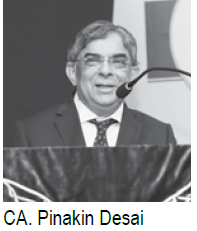

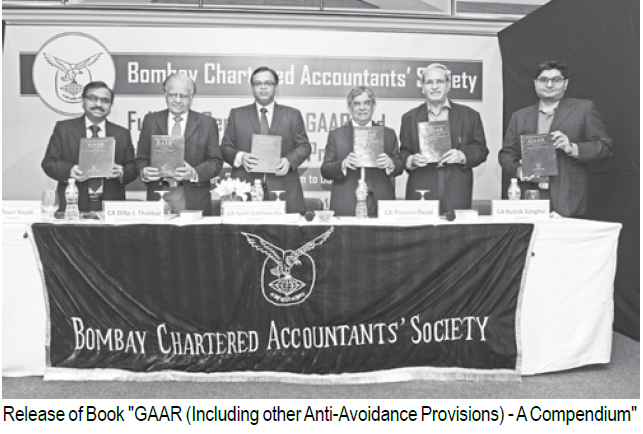
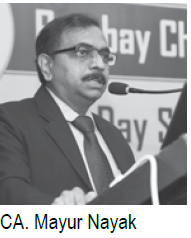
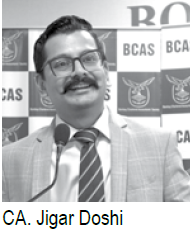


















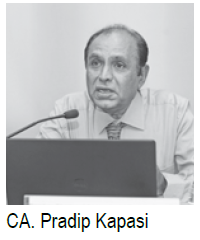


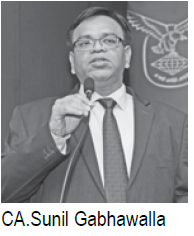




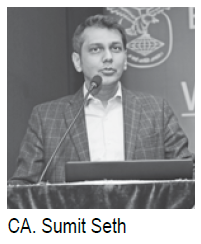



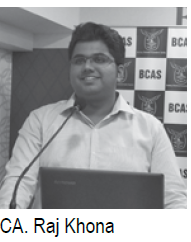
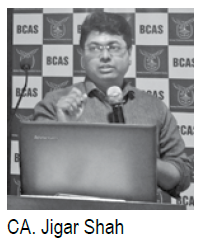

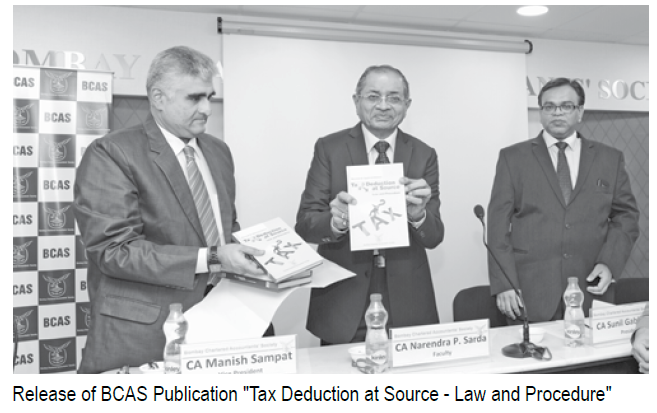
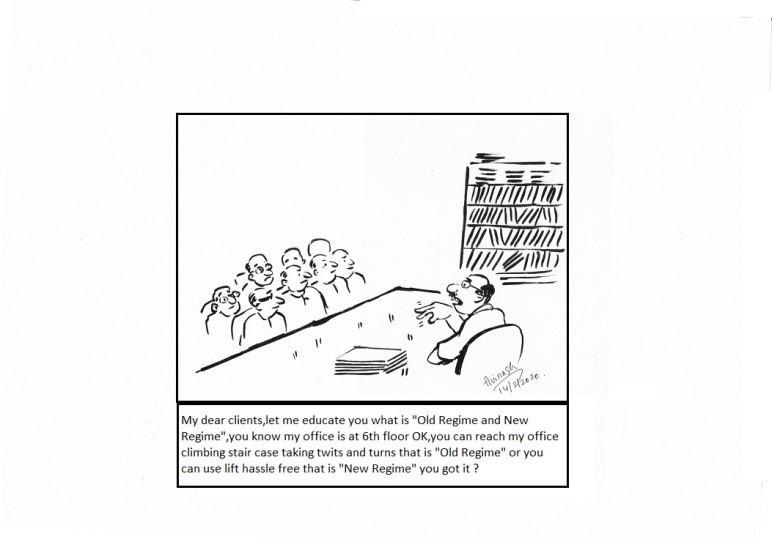
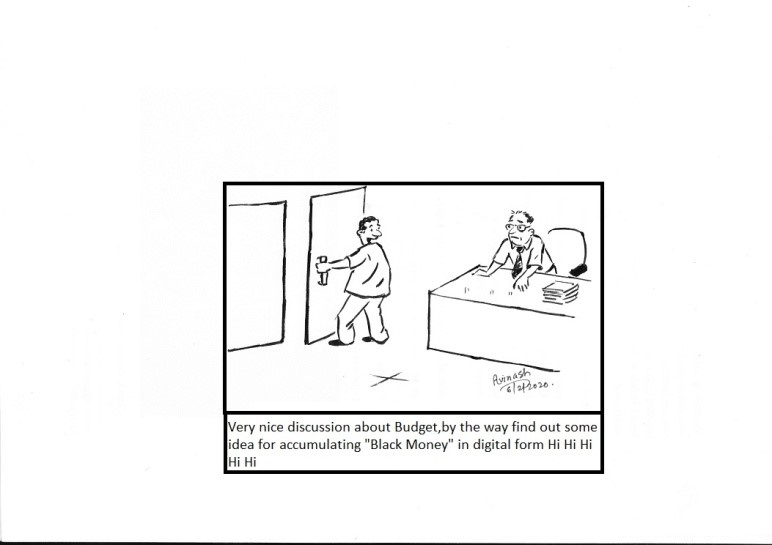
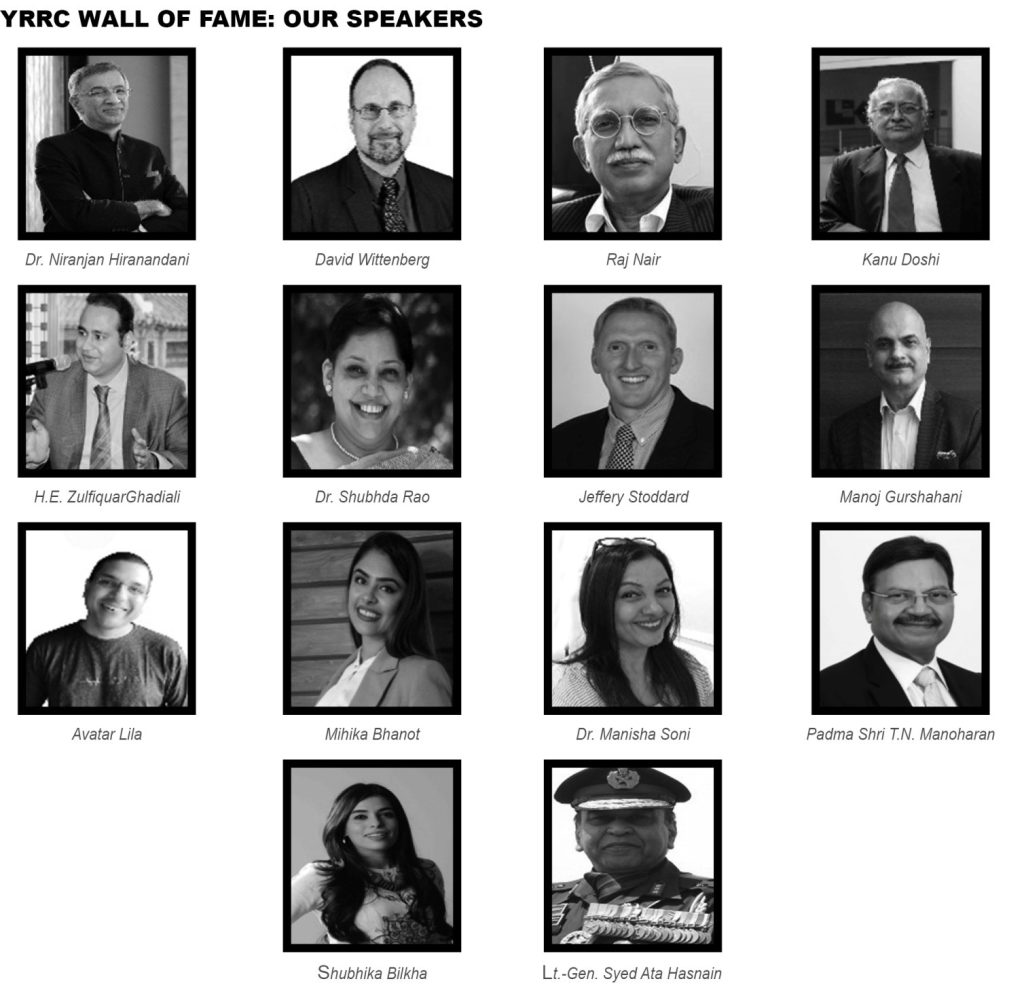
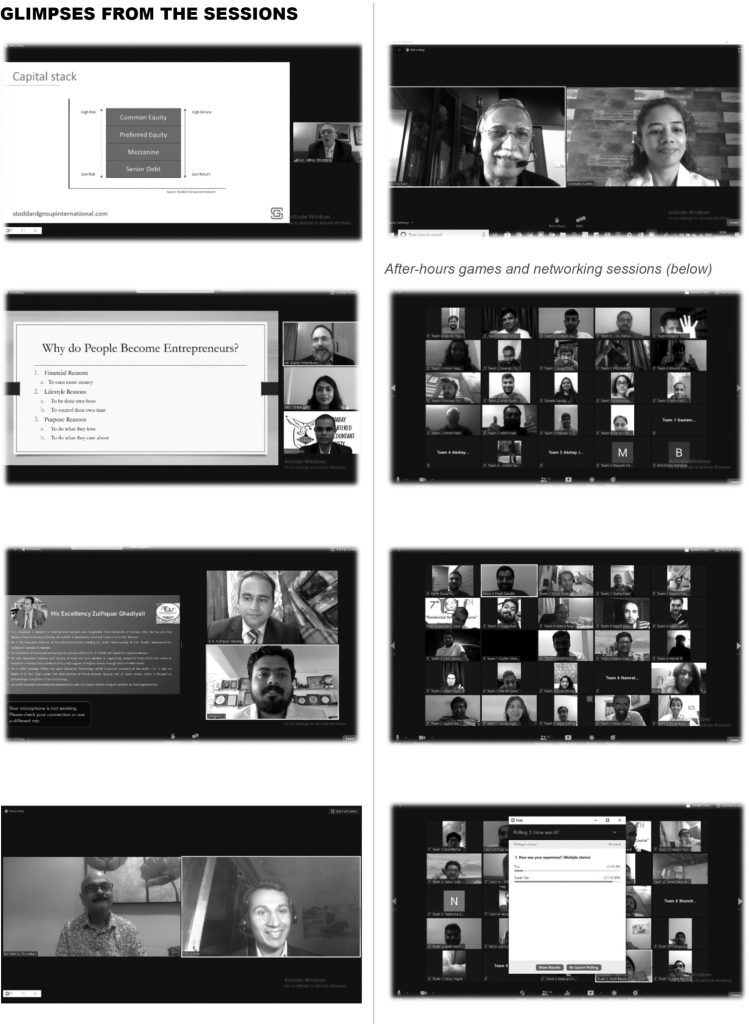

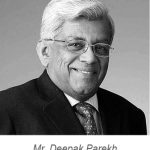

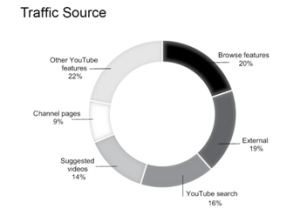
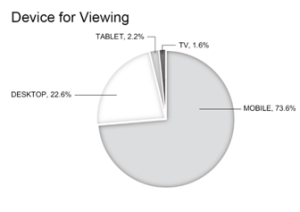
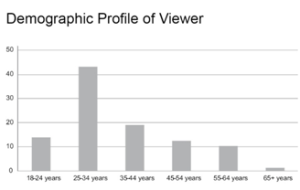
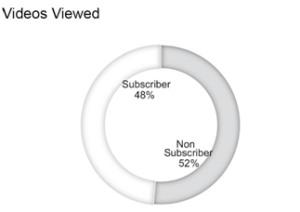
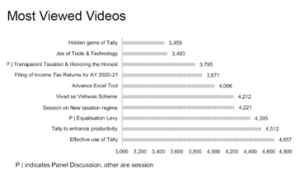







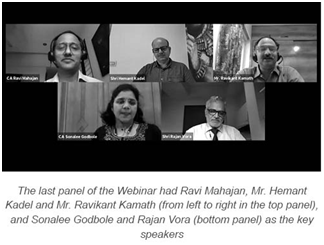
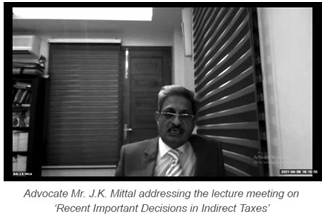










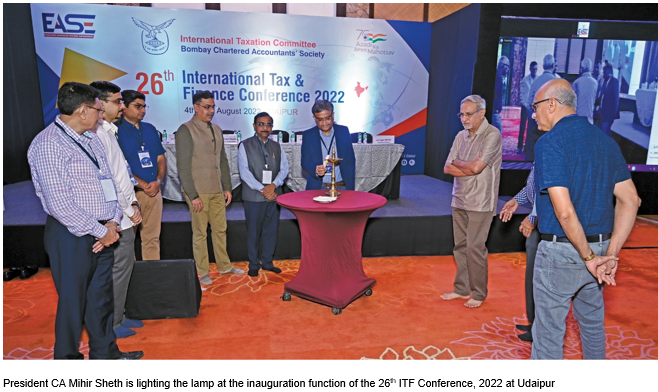
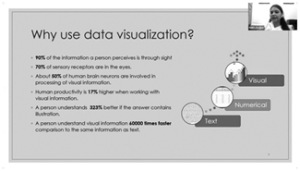
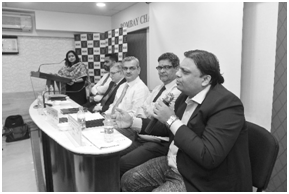
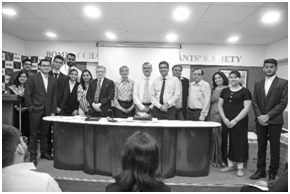
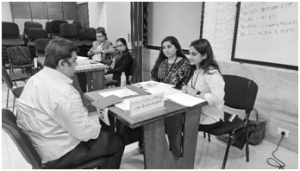
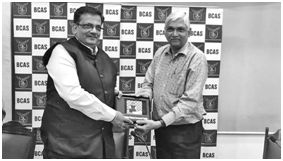
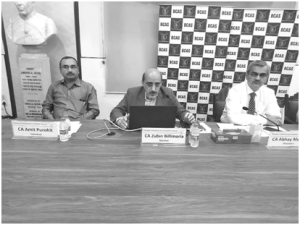
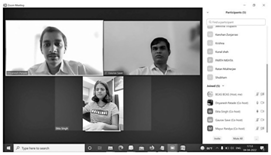
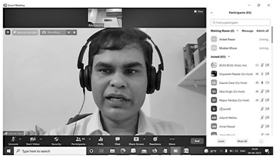
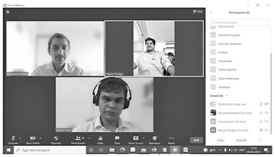












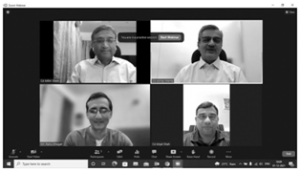





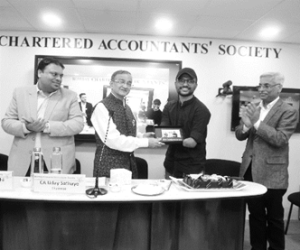




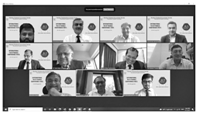
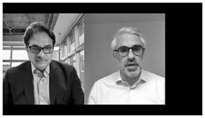
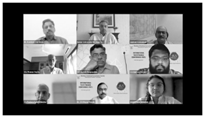
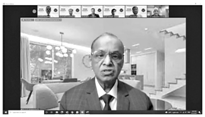

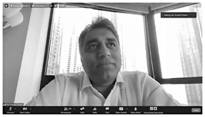
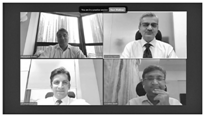

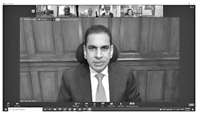
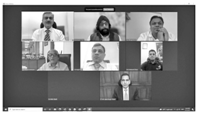

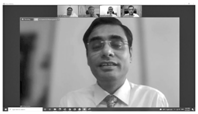
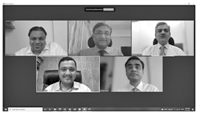


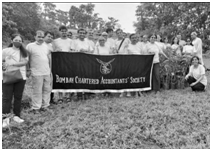
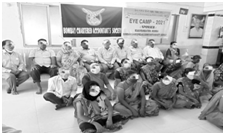
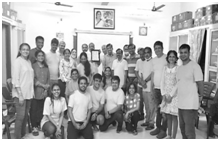










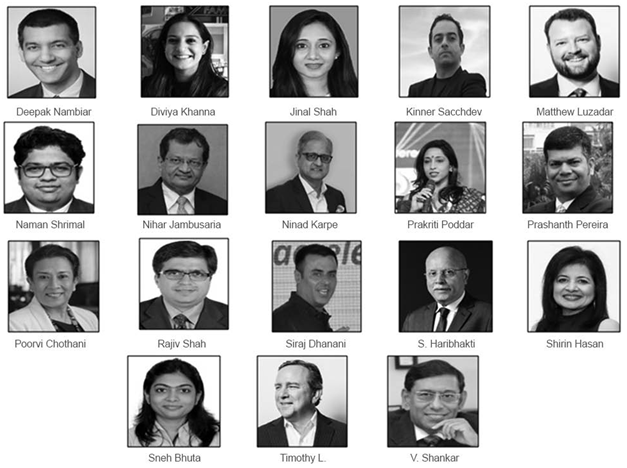
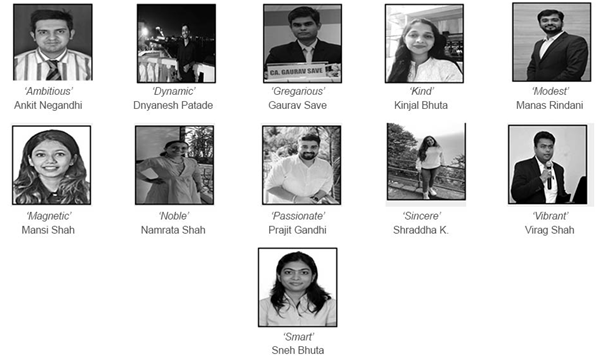
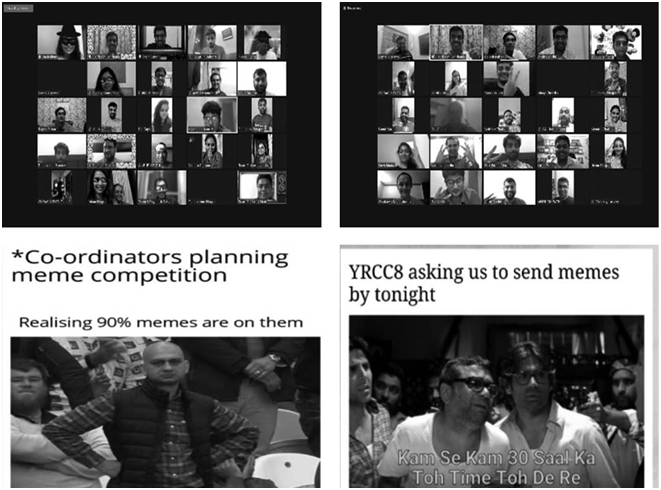






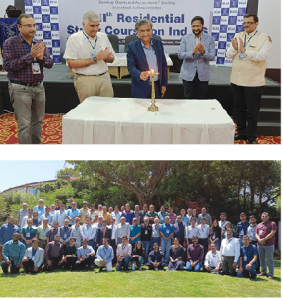

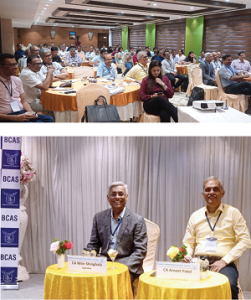
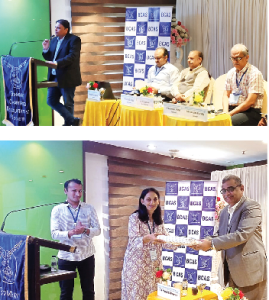


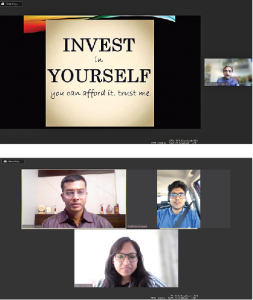

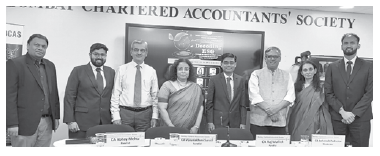
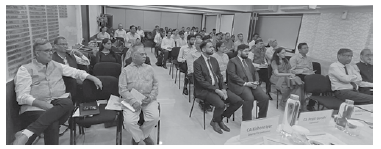
















































 Students Committee performing the flash mob
Students Committee performing the flash mob







































